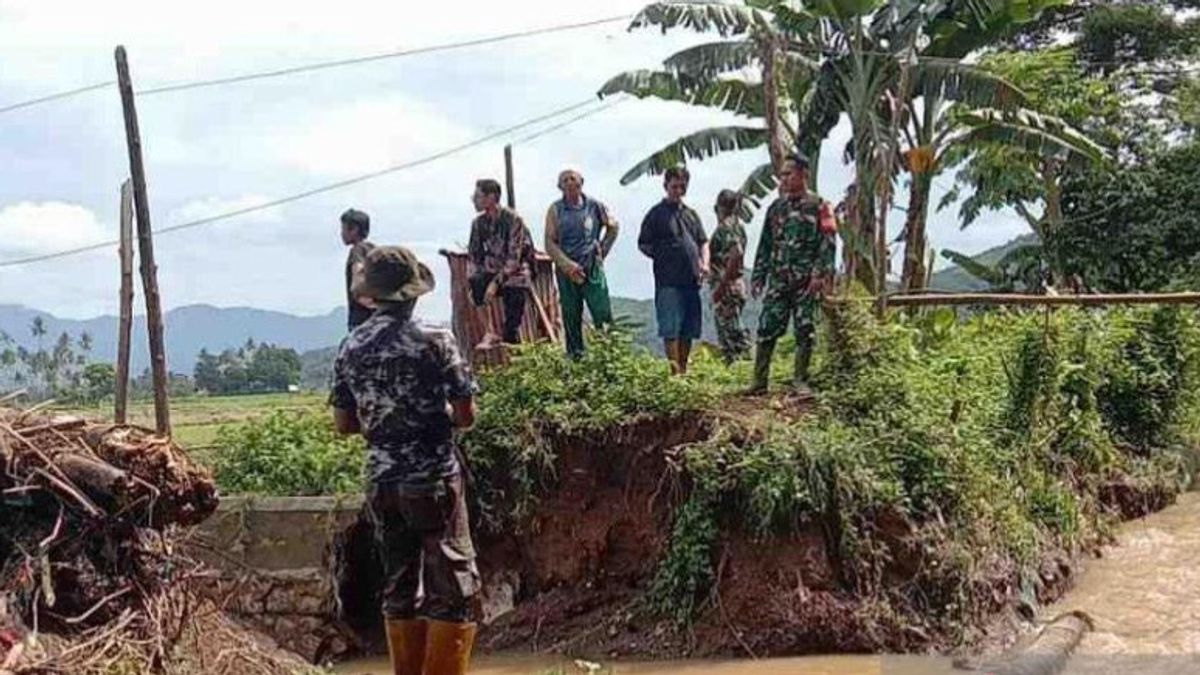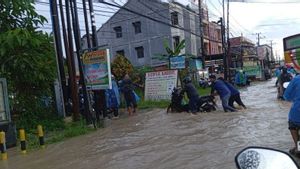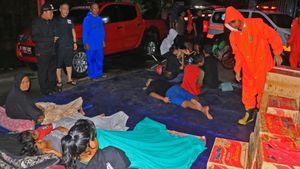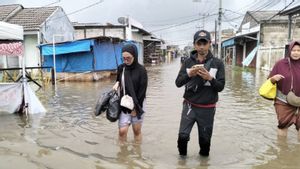Due to the collapse of two irrigation canals due to flooding, as many as 100 hectares of rice fields that have been planted in Mbawi Village, Dompu District, Dompu Regency, West Nusa Tenggara (NTB), are threatened with crop failure. "If the damage is not immediately repaired, the agricultural area and rice plants belonging to the farmers are feared to be damaged or crop failure," said Field Agriculture Extension (PPL) of Mbawi Village, Heru, when confirmed by ANTARA, in Dompu, as reported by ANTARA, Wednesday, January 29. He said the burst of two 50-meter-long irrigation canal points was caused by flooding on Monday (20/1). "The impact of the damage, the rice planted rice is submerged and part of the damaged irrigation canal is filled with sand material and others," said Heru. Until the ninth day after the flood, Heru continued, there has been no attempt from the Regional Apparatus Organization (OPD) related to immediately repair the damage. "And to note that the submerged land during the flood has begun to be planted again. However, if the damage has not been handled, it is certain that the flood will remain in the rice fields," he said.
SEE ALSO:
The village head (Kades) Mbawi Sukrin Ibrahim explained to ensure the condition of his party's land along with PPL, BP Chair, Babinsa, and Gapoktan Chair Mangge Lo'i, identified the impact of the flood. "We carried out joint monitoring, including Babinsa Dorebara Village, at locations affected by floods. Followed by a meeting at the village office the day after the flood," he said. At the meeting, Sukrin continued, producing several important points, among others, the Dompu Regency Government is expected to immediately repair irrigation canals that were damaged. "Then it is hoped that the downstream part of the Laju River is normalized around the estuary bordering Wawonduru Village, Woja District," he explained. Sukrin added that the upstream section is expected to further emphasize the transfer of farmers' cultivation commodities with forestry, plantation, horticulture plants. "Like fruits, especially on tilted land. The goal is to avoid land visorization and other heavy materials," said Sukrin. Meanwhile, the Head of Gapoktan Mangge Lo'i, Damrun said that the condition of all the land due to the overflowing of the flood was in a watery, sandy, and muddy state. This condition would threaten the land and rice plants that had already been embedded. This would certainly damage the plant and make the land damaged too. "The rice seeds cannot be planted. Apart from the result of the soil, it is also covered by mud and gravel. This is the third flood has occurred and will continue this way," he concluded.
The English, Chinese, Japanese, Arabic, and French versions are automatically generated by the AI. So there may still be inaccuracies in translating, please always see Indonesian as our main language. (system supported by DigitalSiber.id)












